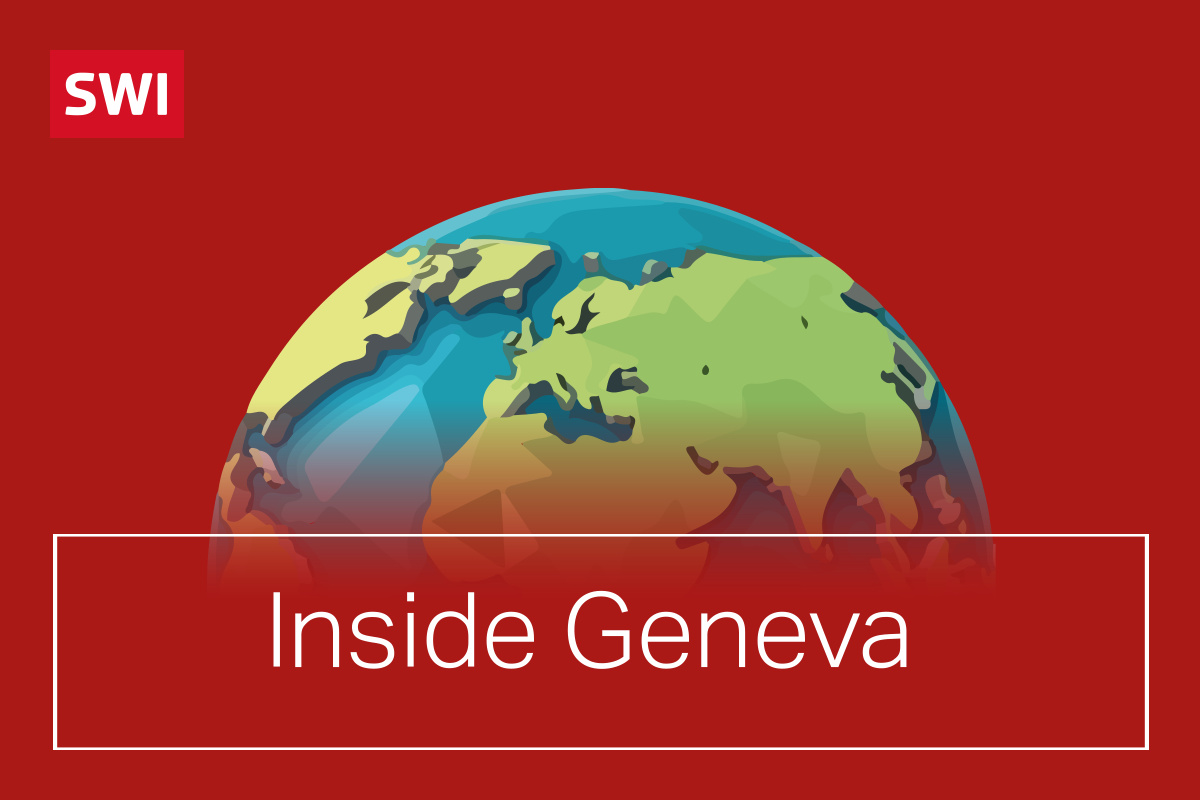
Press freedom: more important than ever
May 3rd is press freedom day. It’s a day I mark somehow or other almost every year, but this year, it really does feel as if press freedom has never been more important.
We have a war in Europe, in which millions of ordinary Russians are being actively prevented from finding out what is actually happening. Our brave independent media colleagues in Russia have been suppressed, many have had to flee the country for their own safety.
The importance of press freedom is the subject of this week’s Inside Geneva podcast, in which I’m joined by Guilherme Canela, head of UNESCO’s Freedom of Expression and Safety of Journalists section, Clayton Weimers, deputy director of Reporters without Borders USA (RSF), and Nick Cumming-Bruce, contributor to the New York Times.

More
Press freedom: more important than ever?
It’s an old saying, originally applied to the first world war, that truth is the first casualty in war, and what has happened in Russia makes it just as relevant today. As Nick Cumming-Bruce tells Inside Geneva ‘We have a war going on at the moment which just highlights how important press freedom is. This is a war that was fuelled on a completely false narrative, has created a parallel universe that is a real challenge to what we understand as truth.’
Fake news
The consequences, as we are seeing in Russia and Ukraine, of journalists being prevented from reporting the facts, are truly disturbing. They are also surreal, almost Orwellian. The war cannot be called a war, Russian protestors, even acting alone, holding up blank placards (since the word war cannot be mentioned) are being arrested. And, inside Russia, none of this dissent can be reported.
But it wasn’t the Kremlin that created the expression ‘fake news’ to discredit reputable journalists. It was Donald Trump’s White House, which regularly accused the ‘main stream media’ of, basically, lying. Everything, it seemed, that wasn’t a full throated endorsement of the president was ‘fake news’.
I have colleagues in the US who have been attacked at political rallies. In Geneva, I have personally been threatened, by a senior member of the Trump administration, with having my press credentials removed because I asked a question he didn’t like.
The practice of trying to bully and intimidate journalists, by denying them access, insulting them, refusing to answer questions, and discrediting their reporting is a trend not unique to authoritarian governments.
‘We need to work on ending the culture of impunity that governments seem to enjoy when it comes to targeting and harassing journalists,’ RSF’s Clayton Weimers tells Inside Geneva.
Funding woes
But how? Many media outlets have, over the years, faced not just harassment and intimidation, but serious financial cutbacks. Social media, once praised as the great liberator, the platform for ‘citizen journalism’ has contributed to a climate where news consumers think they are entitled to journalism for free, while at the same time creating a space for all sorts of unverified ‘news’, produced by people who do not fit the traditional definition of a journalist.
As UNESCO’s Guilherme Canela points out ‘For quality and professional journalism to thrive, to keep on existing, it is absolutely fundamental that this public good should be funded.’
But when governments send the signal that journalists aren’t worthy of respect, the mood among the public is unlikely to be favourable to putting more money into the media. Here in Switzerland, where many vibrant newspapers have had to close over the last few years, voters recently rejected a government proposal on more funding for the media.
‘The media has been undermined within so-called liberal democracies,’ warns Nick Cumming-Bruce.
Any good news?
But, before we journalists give in to depression and defeat, Guilherme Canela points out that there is some good news. Transboundary journalism is one example, he says, which has brought ‘into the light of day’ very important stories, such as the Panama Papers.
Meanwhile, over the last three decades, with UNESCO’s help and advice, dozens of countries have introduced freedom of information laws. And during the Covid 19 pandemic UNESCO had a programme to support 30,000 journalists and media workers from 150 countries to report pandemic related stories fairly and factually.
Over at Reporters without Borders, staff are doing their best to support journalists, inside and outside Russia, reporting the war. A press freedom centre has been set up in Lviv where journalists can get safety helmets and vests, they can recharge their mobile phones, and file their stories. There are thoughts too, on creating and supporting a community of Russian journalists ‘in exile’ who can report independently.
So on Press Freedom Day, we should celebrate the positive, but unite against the negative. 52 media workers have been killed this year already. A thriving democracy needs good, fact-checked, impartial, reliable journalism. And that kind of journalism needs respect, trust, and, yes, money.

In compliance with the JTI standards
More: SWI swissinfo.ch certified by the Journalism Trust Initiative































You can find an overview of ongoing debates with our journalists here . Please join us!
If you want to start a conversation about a topic raised in this article or want to report factual errors, email us at english@swissinfo.ch.